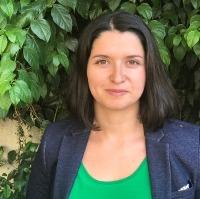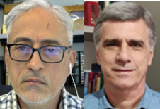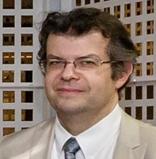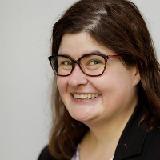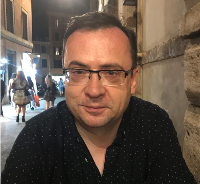Blog
Unless otherwise stated, content is shared under CC-BY-NC Licence
Developing a Digital Preservation Training Plan at NARA
Elizabeth England, Digital Preservation Specialist and Leslie Johnston, Director of Digital Preservation both from the U.S. National Archives and Records Administration.
As part of its Digital Preservation Strategy, the United States National Archives and Records Administration (NARA) has goals associated with the ongoing review of its program and with ensuring that agency staff have appropriate training. Discussions with our internal digital preservation advisory group confirmed the findings from our ISO 16363 self-audit in 2019 that NARA staff in a variety of roles are unfamiliar with the goals and activities that are part of digital preservation, as well as the technologies used, NARA-specific activities and programs, and the regulations and guidance that NARA produces and abides by to ensure that the permanent born-digital and digitized records of the federal government are managed, preserved, and made accessible.
Web Archiving Projects as a Path to Cross-Department Collaboration and Building a Broader Audience for Digital Preservation Activities
Teresa Soleau is Digital Preservation Manager and Alexis Adkins is Institutional Archivist. They work at the J. Paul Getty Trust.
As one of the newest members of the DPC we are thrilled to start working more closely with others in the digital preservation community, hearing about their work and sharing ours. As a first step in that direction, we’re going to share with you some web archiving work we’ve done in the past year. At Getty we don’t have a specific person dedicated to web archiving so the work is done collaboratively between staff in Institutional Records and Archives and Getty Digital.
Memoria constituyente: Preservación digital del patrimonio documental de la Convención Constitucional
Gabriela Andaur Gómez, Archivera del Archivo Electrónico del Archivo Nacional de Chile //
Gabriela Andaur Gómez, Archivist of the Electronic Archive of the National Archive of Chile
[ENGLISH FOLLOWS]
Quienes trabajan en instituciones comprometidas con el patrimonio documental, saben que puede resultar desafiante transmitir la relevancia y urgencia de la preservación digital como área de desarrollo permanente. La complejidad del trabajo técnico y la necesaria inversión de recursos que implica, pueden ser difíciles de justificar cuando los resultados no son visibles de manera inmediata. Por el contrario, sabemos que el valor de la preservación digital se revela con particular fuerza en la medida en que transcurre el tiempo, mucho más allá de lo que el corto plazo nos permite anticipar.
Considerations on the barriers to the practice of digital preservation
Amarílis Corrêa is an Academic Librarian and Researcher on digital preservation in São Paulo, Brazil / Amarílis Corrêa, Bibliotecária acadêmica e pesquisadora em preservação digital
[PORTUGUESE FOLLOWS]
For some of us, there seems to be no barriers to digital preservation; for others, too many. Is the grass always greener on the other side of the fence? For me it is, considering I haven’t had the opportunity to implement any part of the digital preservation process in the institution where I work.
My Backwards Walk – Thinking About a Decade at the DPC
13th June 2021 was the 10th anniversary of my first day with the DPC, the point where I made the switch from practitioner to a focus on workforce development. Such a significant milestone has naturally led to time spent reflecting on years past and hopes for the future.
As with any experience in life, my decade with the DPC has brought a combination of highs, lows, and plenty places in between. But thankfully I can report that the highs massively outnumber the lows. In my family, our unofficial motto is that “it’s all about the stories” and I can say with all confidence that my time with the DPC have given me more interesting stories to tell than I could possibly count. So, overall, I think that my time with the organization has been a success.
The Cariniana Network for Digital Preservation
Miguel Ángel Márdero Arellano is Cariniana Network Coordinator at IBICT and José Carlos Abbud Grácio is President of the Permanent Commission for Digital Preservation UNESP.
A network of digital preservation services
In many countries, experiences in the implementation and actions of digital preservation have aroused the interest of heritage institutions, which seek to formalize preservation strategies through policies and action plans in different infrastructure contexts and aimed at digital collections of different natures and scenarios. In Brazil, the work area of digital preservation is still little known, despite this, the practices of digitization and creation and repositories in the country converge in digital preservation actions in spaces where norms, tools and digital archiving systems are formalized.
Digital preservation in Brazil as an institutional practice is still linked to relatively restricted experiences. The perspective of expanding procedures and institutionalizing policies in this field involves the structuring of archive networks, or libraries, which contribute to disseminate technologies and support services, promote the sharing of collections and expand the possibilities of exchange between dedicated researchers to the same themes.
Presentation of the French translation of the Digital Preservation Handbook
[la version française suit]
Since 2019, France has had a Cellule Nationale de Veille sur les formats (National Formats Watch Unit), under the aegis of the French association Aristote and its working group on the Preservation of Digital Information (PIN). The Cellule currently brings together a dozen private and public partners. Its main objectives are to share monitoring activities on formats, to raise awareness among professionals on the subject, and to contribute to or influence the associated tools. It aims to be a recognised French-speaking interlocutor in international work on these subjects.
Breaking Down Barriers: Harnessing the power of our people
This blogpost has been written by St George’s Records Manager Kirsten Hylan, Archivist Juulia Ahvensalmi, Records Manager Kirsten Hylan and Research Data Support Manager Elizabeth Stovold.
The World Digital Preservation Day theme for 2021 is ‘Breaking Down Barriers’ and focuses on how digital preservation supports digital connections, unlocks potential and creates lasting value. In this post we’ll look at the work we’ve been doing to identify areas in the university holding records of interest for long-term preservation. By connecting with people and areas of the university who previously were not involved in the project we are unlocking the potential of the records and creating lasting value.
You can engage with the day and find out more about our work on the Museum and Archives Twitter account, and using the hashtags #WDPD2021 and #SGULwdpd2021.
Being brave and making connections at the University of Hull
Laura Giles is the City of Culture Digital Archivist at The University of Hull, UK
We’ve blogged before about our work on the City of Culture digital archive and now in keeping with the Breaking Down Barriers theme of this World Digital Preservation Day we’re now thinking about the ways that the City of Culture digital preservation work can help us open doors across the university to build relationships and embed good practice around the creation, storage and eventual preservation of digital records.
Community archives & digital preservation – Breaking down barriers
John Pelan is the Director of the Scottish Council on Archives
The digital archives of community groups were added to the DPC’s Bit List under ‘Critically Endangered’ in 2019 due to a number of identified aggravating conditions. These included: poor documentation; lack of continuity funding; dependence on small number of volunteers, conflation of backup with preservation; and distrust of official agencies, e.g., local authorities and national collecting bodies.












































































































































